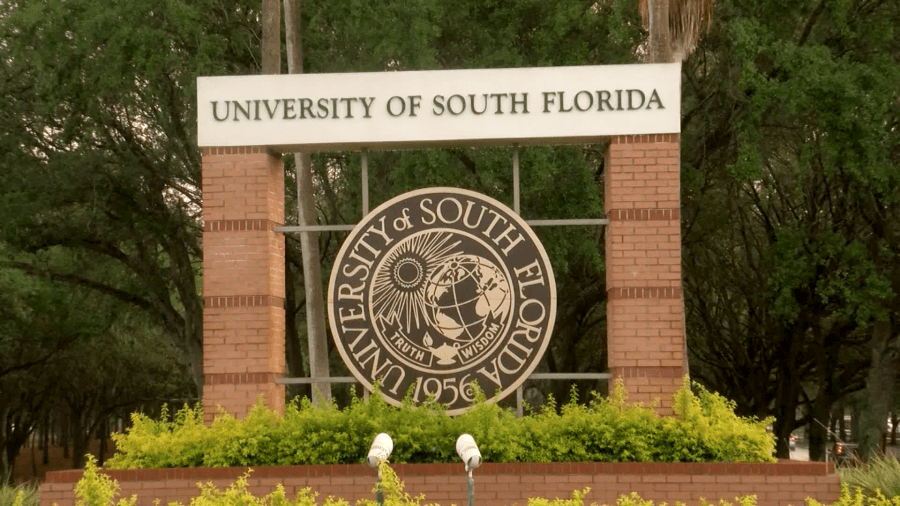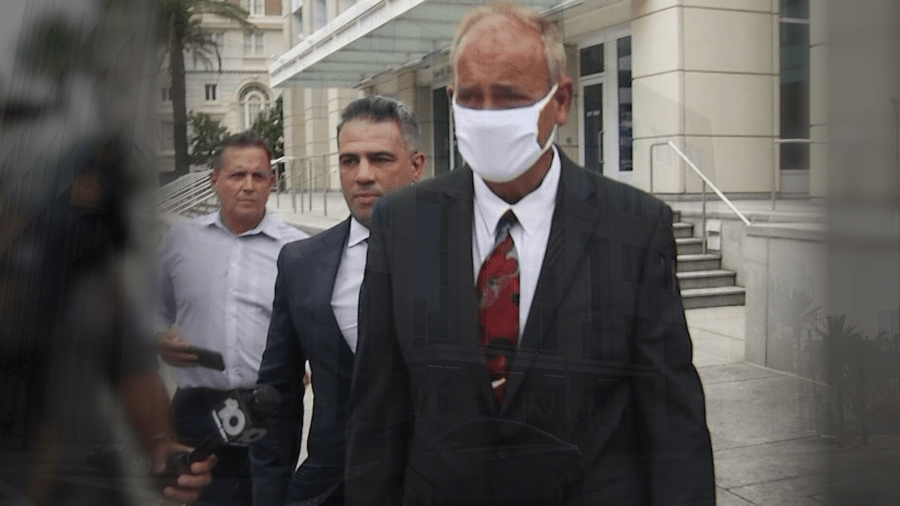TAMPA, Fla. (WFLA) — Ralph Puglisi, who pleaded guilty more than a year ago to federal charges in connection with a nearly $13 million scheme involving USF money, did not turn himself into prison on his voluntary reporting date.
Puglisi’s attorney filed a motion to extend the Dec. 31, 2022 incarceration deadline, stating in the filing he needed more time to help USF “in the recovery of assets” in the civil lawsuit against Puglisi’s family members and associates who allegedly profited from the crime.
The motion was unopposed by prosecutors, but Judge William F. Jung denied it on Dec. 29, 2022, the day after it was filed by Puglisi’s attorney Anthony Rickman.
Jung granted a similar unopposed motion in October that extended Puglisi’s self-surrender date to Dec. 31, 2022. Details about why Jung denied the second motion have not been released.

A federal warrant led to Puglisi’s arrest on Jan. 11. He was initially taken to the Pinellas County jail but was transferred to Coleman Federal Correctional Institution a week later to begin his 10-year prison sentence.
Rickman said he did not know why Puglisi did not turn himself in on the reporting date. William Daniels, the spokesman for the Tampa-based U.S. Attorney’s office, chose not to comment on Puglisi’s no-show.
Puglisi was the accounting manager for USF’s University Medical Services Association (UMSA) for about a decade, but in 2014, he began using corporate credit cards “to make unauthorized charges,” according to court documents.
Investigators said Puglisi “used the cards for home furnishings, trips and gifts” because he believed he had to provide a “luxurious lifestyle” for his now ex-wife and her family.
In August 2021, Puglisi pleaded guilty to mail fraud in a plea agreement and admitted he took $12.8 million from UMSA.
Puglisi’s ex-wife’s attorney David Knox has denied Puglisi’s claims that she benefited from his crime.

In his sentencing motion, Puglisi said his marriage lacked “romance,” prompting him to turn to a “webcam performer” with an adult website MyGirlFund for “sexual gratification and companionship.”
Puglisi said his virtual girlfriend “manipulated” him and said, “she was in love with him, leading him to believe that they were in an actual relationship.”
Puglisi said he eventually paid the woman about $6 million.
Investigators said almost $11.5 million of the missing money was sent to MyGirlFund, and Puglisi purported in his motion that the total made up “80% of all MGF profits for the time period.”
Scott Rost, the attorney for the website in a civil lawsuit filed by USF to recoup some of the losses, denied Puglisi’s claim after the motion was filed last year.
“While we typically do not comment on pending litigation,” Rost said in an email. “This allegation by Mr. Puglisi is false and based on no objective data.”
The other defendants in the civil case have either denied Puglisi’s claims or not responded to requests for comment.
Records show Puglisi has paid more than $1.2 million in restitution and also turned over his interest in a $400,000 property in the Virgin Islands.






